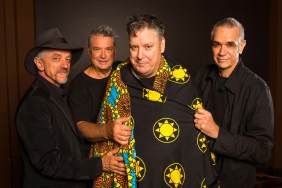Dylan Baldi, the singer-songwriter behind Cleveland, Ohio indie rock outfit Cloud Nothings, comes off as a strong contrast to the serious alternative rock of the band’s latest records: he’s genial over the phone when the albums are ferocious, he’s relaxed when the music is intense.
Dylan is gearing up to release the band’s latest album, Here and Nowhere Else, at…












